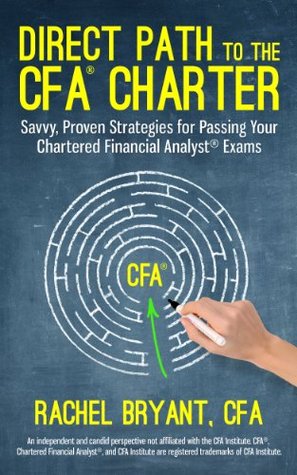More on this book
Kindle Notes & Highlights
“A straight path never leads anywhere except to the objective.”
You must have a study regimen that is focused on passing the tests, not simply learning the material.
Topics Included on the CFA Tests If nothing else, the CFA Program is thorough. You’ll study almost every financial topic under the sun. According to the CFA Institute, these are the ten subjects that are covered on the CFA tests:4 Ethical and Professional Standards Quantitative Methods Economics Financial Reporting and Analysis Corporate Finance Alternative Investments Equity Investments Fixed Income Derivatives Portfolio Management and Wealth Planning
It’s as if the CFA Institute held a contest asking people to name every finance-related topic they could think of and this was the winning entry. The
CFA Program is a series of college courses without a professor,
You’ll finish the CFA Program with about 18 curriculum books. Your bookshelf is going to look very impressive!
you must learn every crumb of information. Nothing may be skimmed, skipped, or ignored.
Every question on test day can be linked to a Learning Outcome Statement.
providing LOSs, the CFA Institute essentially gives you a hint into what the test questions will assess.
For each Level, to help us navigate the LOSs, the CFA Institute divides them into 18 study sessions.
If you’ve completed your registration, you may call yourself a “Level I CFA candidate” or simply a “CFA candidate.”
However, you may not put these terms after your name, as in “John Doe, CFA Candidate.” Only CFA charterholders may use the CFA letters after their names.
Further, calling yourself a “Level I CFA” is always a no-no. You are a Level I CFA candidate. When you pass the Level I exam and register for Level II, you are a Level II CFA candidate.
rachel@rachel-bryant.com.
At least half of your working hours must be spent doing CFA Institute-approved activities that are related to making investment decisions.
Check the CFA Institute website for the current guidelines.
Aim to finish each practice test in five hours instead of the test day allotment of six.
It takes bravery—or foolishness—to sign up
Whether you are brave or foolish largely depends on your preparation.
Be sure to look up the current matrix on the CFA Institute’s website.11
The Level II test searches for the Navy Seals of Finance.
Plan to be an expert in the Investment Tools category by your Level II test day.
Every list, equation, and definition must come to mind in seconds and then be communicated in written English under a tremendous time crunch.
You will receive a “pass” or “fail” result, not a numerical grade.
even with eighteen study sessions to choose from, one subject unites us in collective frustration: Almost everyone's favorite subject to complain about is Ethics.
In Level I, you can know without a doubt that 36 questions out of the total 240 will come from this relatively small section of the curriculum.
Know Ethics. Really know it.
are encouraged to decline paid transportation and lodging when visiting companies that you are researching. However, if commercial transportation is not convenient for the location or itinerary, you can ride on the company’s corporate jet and stay—expenses paid—in a nearby hotel, as long as it is “modest.”
takes the rules seriously, and the exams will, too.
First, the two-page pamphlet Code of Ethics & Standards of Professional Conduct (Code and Standards) provides overarching principles by which all CFA candidates and charterholders must abide. Every word of these two pages should be memorized.
long examples of the Ethics principles in practice. These lengthy cases are diversions because, right now, you are short on time and need to be focused on high-impact study activities.
Reading them is not a good use of your study time.
My advice is to spend your study time on tasks that add more value rather than reviewing cases that bear little resemblance to the CFA exams.
at least 100 practice questions as you study Ethics. Practice questions uncover your true understanding of the information.
knowing Ethics is a straightforward secret to passing the CFA Program.
300-hour recommendation is flawed.
It doesn’t tell you how much to study; it tells you exactly how much studying is not enough.
If you want to pass comfortably, put in north of 1,300 hours in total for the CFA Program. Level I will require approximately 350 hours of study time, Level II necessitates 500 hours, and Level III entails another 450 hours. Thus, you arrive at the unpleasant total of 1,300.
recommend completing about 1,500 practice questions during this initial study phase, which equates to roughly 75 questions per study session.
most can be answered in under 90 seconds.
In Level I, a typical study session requires 10 hours to adequately cover it the first time,
In Level II, try answering 50 practice questions for each study session during your first pass of the curriculum,
The material is dense, but this is not necessarily the challenge. This test is all about the details. The painstaking, exhaustive, minute details. And you are expected to know all of them.
Scheduling 500 hours is much more appropriate than 300.
Level III exam is tough, which is why you still need to commit additional hours beyond 300. It contains both essay questions (morning session) and multiple-choice questions (afternoon session).
Studying for the CFA Program is akin to managing a project.
They focus on three, often opposing, project goals: (1) maintain quality, (2) finish on time, and (3) preserve order by thinking sequentially and minding the critical path.
I strongly recommend that you pick the June exam.


